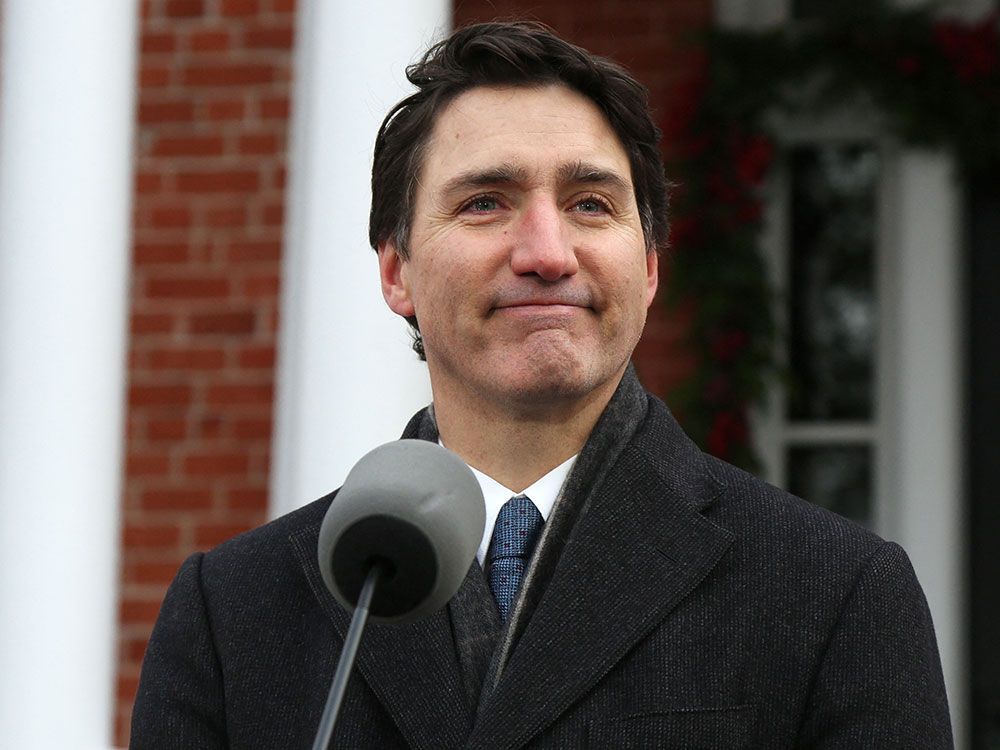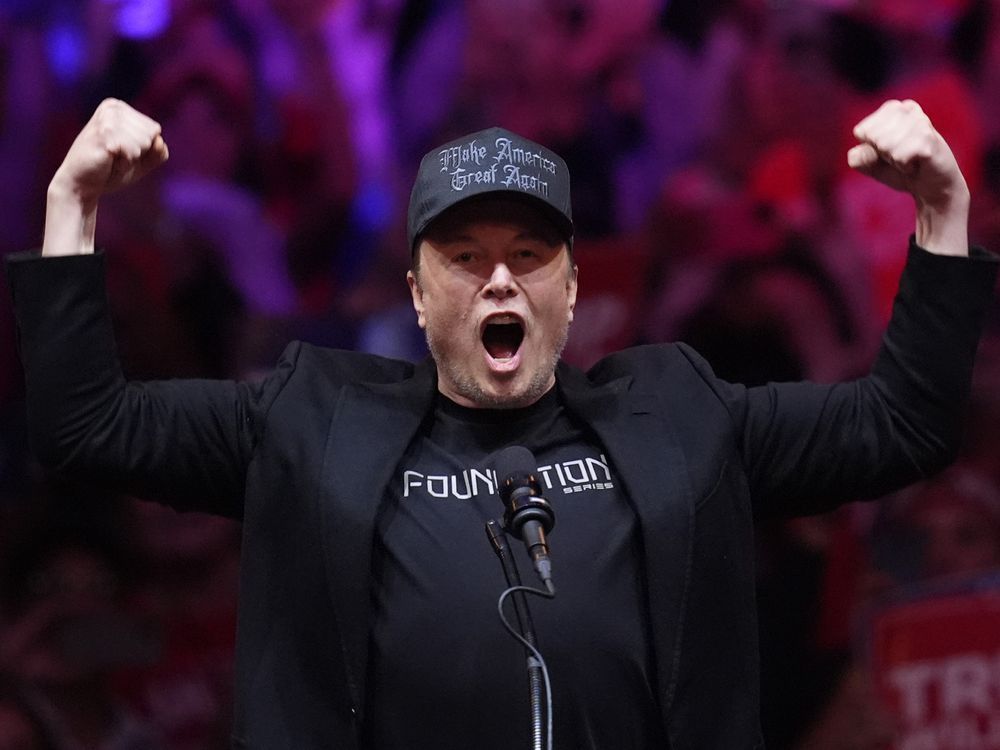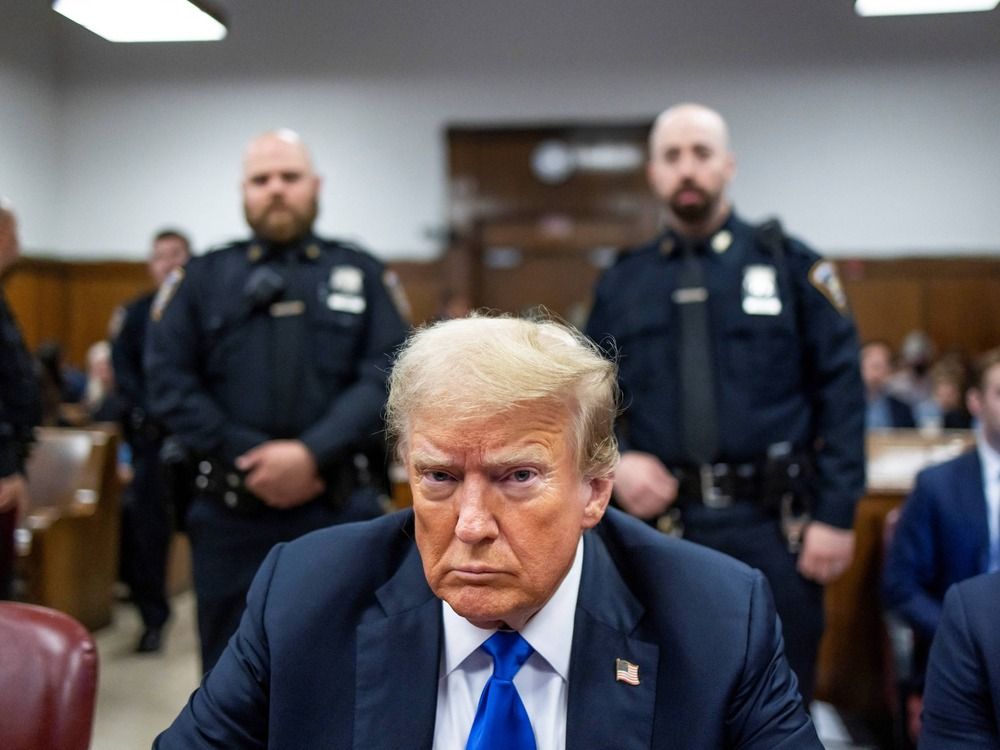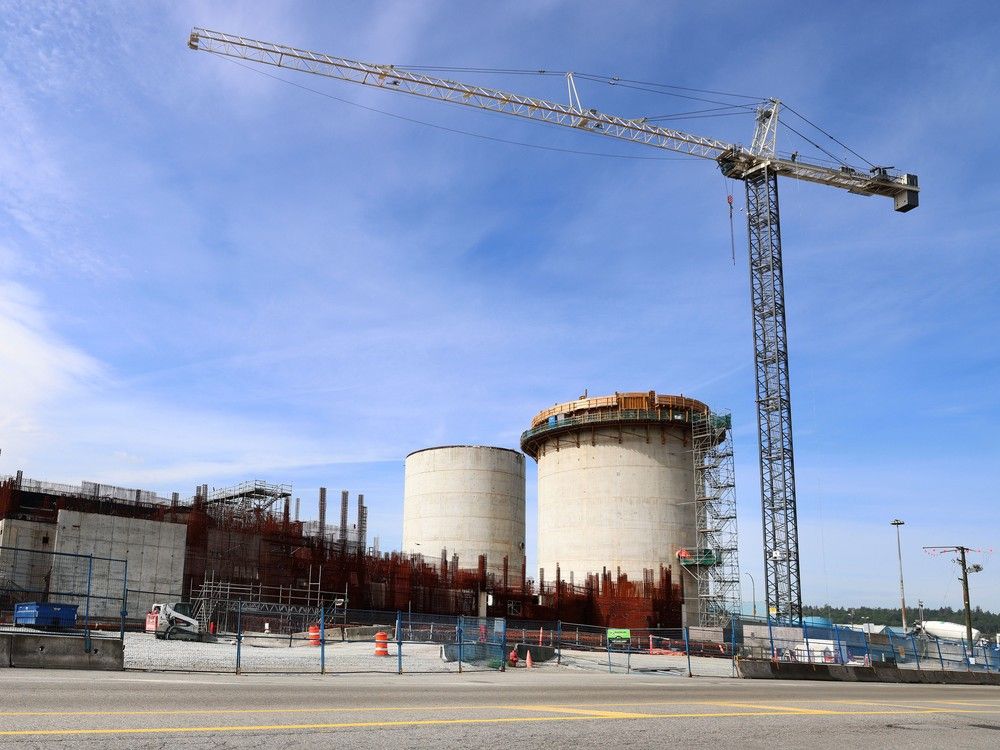Perhaps the upside to the anxiety Trump has unleashed is Canadians rediscovering what they love about their country, which Trudeau subdued
Get the latest from John Ivison straight to your inbox
Published Jan 09, 2025 • 6 minute read

Western democracy has weathered severe tests in the past, from fascism to Bolshevism.
The United States, though often late to the game, was generally on the side of open markets, self-determination and the rule of law.
But Donald Trump’s extraordinary statement on January 7th — that he could not rule out the use of force to annex Greenland and the Panama Canal for national security reasons; and that he would use “economic force” to subdue Canada — would put him in the same camp as the autocrats who run Russia and China; advocates of the idea that might is right.
Advertisement 2
THIS CONTENT IS RESERVED FOR SUBSCRIBERS
Enjoy the latest local, national and international news.
- Exclusive articles by Conrad Black, Barbara Kay and others. Plus, special edition NP Platformed and First Reading newsletters and virtual events.
- Unlimited online access to National Post and 15 news sites with one account.
- National Post ePaper, an electronic replica of the print edition to view on any device, share and comment on.
- Daily puzzles including the New York Times Crossword.
- Support local journalism.
SUBSCRIBE FOR MORE ARTICLES
Enjoy the latest local, national and international news.
- Exclusive articles by Conrad Black, Barbara Kay and others. Plus, special edition NP Platformed and First Reading newsletters and virtual events.
- Unlimited online access to National Post and 15 news sites with one account.
- National Post ePaper, an electronic replica of the print edition to view on any device, share and comment on.
- Daily puzzles including the New York Times Crossword.
- Support local journalism.
REGISTER / SIGN IN TO UNLOCK MORE ARTICLES
Create an account or sign in to continue with your reading experience.
- Access articles from across Canada with one account.
- Share your thoughts and join the conversation in the comments.
- Enjoy additional articles per month.
- Get email updates from your favourite authors.
THIS ARTICLE IS FREE TO READ REGISTER TO UNLOCK.
Create an account or sign in to continue with your reading experience.
- Access articles from across Canada with one account
- Share your thoughts and join the conversation in the comments
- Enjoy additional articles per month
- Get email updates from your favourite authors
Article content
The odds are stacked against Canada right now: a prime minister who is in office but not in power is trying to negotiate with the president-elect, like a gazelle trying to reason with a lion while its head is in his mouth.
Canadians are holding out for a hero, a morale-boosting, inspirational figure to unite behind. But the country is wracked with political uncertainty that will persist until at least late April and the conclusion of a general election.
It is a gloomy picture; no car plant in the country could cope with a sustained tariff of 25 per cent as promised by Trump, even if the further depreciation of the Canadian dollar cancelled out some of the impact. Reuters reported this week that Honda is expressing some doubts about proceeding with its $15-billion Canadian electric vehicle plant.
Yet, in speaking to some senior policymakers, there is a sense that it often takes a crisis to rattle Canada’s political complacency and that our finest hours only come after our darkest hours.
David MacNaughton, Canada’s ambassador in Washington during the first Trump administration, said the imposition of tariffs could provide an opportunity to stop being as complacent and reliant on the U.S. “We could get our act together on productivity, open up markets like telecom to competition, get rid of internal trade barriers and up our military spending,” he said. “We tend to never actually do anything sensible until we’re in deep sh-t, as happened in the ’90s when Paul Martin dealt with the deficit.” The International Monetary Fund has estimated that regulatory differences across Canada act like a 20 per-cent-tariff between provinces.
By signing up you consent to receive the above newsletter from Postmedia Network Inc.
Article content
Advertisement 3
Article content
MacNaughton said he spoke to the provincial premiers before Christmas and was impressed with the sense of common purpose and cohesion.
During the last tariff war, MacNaughton was involved in a nascent plan based on the Second World War Victory Gardens, a symbolic but material patriotic mobilization that saw individual Canadians build vegetable plots to help the war effort. The circa-2018 plan, which was never implemented, was designed to encourage Canadians to express their displeasure at Trump’s tariffs by boycotting American goods.
“This will stiffen the spines of Canadians. I think they will decide they don’t want to get pushed around by a U.S. bully and say ‘we don’t have to eat Florida oranges or drink Kentucky bourbon.’ I think Trump has under-estimated the reaction,” MacNaughton said.
Perhaps the only upside to the anxiety Trump has unleashed is that Canadians might rediscover what they love about their country. An Angus Reid Institute study that came out before Christmas indicated that the number of people who said they have a deep emotional attachment to Canada fell from 62 per cent in 2016 to 49 per cent last year. The number who said they have an attachment as long as Canada provides them with a good standard of living, rose from 31 per cent eight years ago to 37 per cent. More than half of new Canadians who have lived in the country less than a decade felt that way. Only six per cent of respondents said they felt Canada should join the U.S.
Advertisement 4
Article content
Conservative Leader Pierre Poilievre has yet to prove he is the inspirational figure Canada needs to navigate such stormy waters, but he has at least dismissed the “Canada as a post-national state” nonsense peddled by Justin Trudeau. In his recent online interview with Jordan Peterson, Poilievre said that he wants to put an end to the importation of ethno-cultural conflicts. “When they get here, they are Canadians first and they leave the hyphens behind,” he said.
It may well be that if Poilievre is elected and offers a serious plan to address military spending and border security, the immediate crisis could pass.
There is no win-win with Trump, a man who appears to believe that imports subtract from GDP. But Canada could simultaneously reduce its trade surplus and increase its defence spending by committing to the purchase of new military equipment from the Americans.
The idea that the Trump administration will focus on national security should come as no surprise. As tensions rise with China, Beijing’s dominance in manufacturing in militarily useful industries such as autos, batteries, electronics, chemicals, aircraft and drones is a real concern. China is now responsible for 45 per cent of global industrial production, the result of a deliberate policy to create over-capacity and force western, Japanese and Korean companies out of the market.
Advertisement 5
Article content
Economist Noah Smith talks about China “forcibly de-industrializing” its geopolitical rivals. He urges American policymakers to use tariffs to block floods of Chinese imports; to use industrial policy to maintain manufacturing capacity; and, to create a large common market outside China.
Trump is set to pursue the first two recommendations but is actively sabotaging the third with his plans to put tariffs on allies like Canada.
Ironically, his heavy-handed approach may push traditional allies like Canada into doing more business with Beijing. The Chinese embassy in Ottawa issued a statement to the Globe and Mail this week saying it is willing to increase trade and explore the prospect for “win-win” results.
It remains to be seen whether Trump’s goal is really to squeeze Canadian industry until the pips squeak. In the last tariffs skirmish, he famously told a nervous audience in North Dakota: “We can’t lose. Just play the game for a little while.”
Even if he does believe that he has the powers of some 18th-century mercantilist king, retaliatory action would probably spike inflation and boost unemployment in the U.S.
Advertisement 6
Article content
Trump is at the peak of his powers now, but it will start ebbing after he takes office on January 20 and heads towards the midterm elections. After that date, he will be responsible for the reaction of the stock and bond markets to his policies. We are already seeing U.S. bond yields rise, with markets spooked at the prospect of tax cuts and more borrowing. Bond investors are demanding higher yields to compensate for the uncertainty at a time when U.S. net government debt is about to exceed 100 per cent of GDP and deficits are running at seven per cent of output.
Delusional Republicans, giddy with the sense of unrestrained power, talk about a new Manifest Destiny, as Trump threatens special operations and economic warfare to build his empire.
But even France’s Louis XIV, the Sun King who was the embodiment of the mercantilist monarch, was constrained by high debt costs, inflation and recession.
Trump might believe “l’état, c’est moi,” but he does not have absolute power, and common sense dictates he will have to compromise.
National Post
Get more deep-dive National Post political coverage and analysis in your inbox with the Political Hack newsletter, where Ottawa bureau chief Stuart Thomson and political analyst Tasha Kheiriddin get at what’s really going on behind the scenes on Parliament Hill every Wednesday and Friday, exclusively for subscribers. Sign up here.
Article content
Get the latest from John Ivison straight to your inbox
.png)
 7 hours ago
18
7 hours ago
18


































 Bengali (BD) ·
Bengali (BD) ·  English (US) ·
English (US) ·